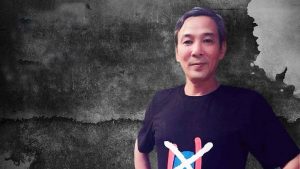25 February 2007
HANOI – Vietnamese authorities have moved an outspoken Catholic priest from his home in the central city of Hue to another parish after accusing him of anti-government propaganda, official media and activist groups said on Sunday.
The investigation of Father Thadeus Nguyen Van Ly, 59, was announced a month after Prime Minister Nguyen Tan Dung became the highest-ranking official in the communist-run government to meet the Pope as Hanoi and the Vatican explore the possibility of establishing diplomatic relations.
State-run Vietnam Television, which rarely reports or acknowledges dissidents, said in its Sunday evening broadcast that Ly was accused of plotting to establish a party called ‘Dang Thang tien Vietnam’ (Vietnam Progression Party).
Vietnamese dissidents, who are mostly active on the Internet, also reported the removal of Ly by police on Saturday to a parish in Thua Thien-Hu province.
‘This action is regarded as an effort by the regime to further isolate Father Nguyen Van Ly,’ Viet Tan (Vietnam Reform Party) said in a statement e-mailed to Reuters.
Ly, who has spent more than a decade in prison since the early 1980s, was last freed from prison two years ago. He had been convicted of undermining national unity in 2001 and sentenced to 15 years in jail plus five years of house arrest.
Vietnam has the second largest number of Catholics in Asia after the Philippines, but they still make up less than 10 percent of 84-million population.
Television showed footage of police raiding Ly’s house. Police also seized 200 kg (440 lb) of documents, several personal computers, printers, mobile phones and more than 130 mobile phone cards, the report said.
‘Nguyen Van Ly has further contacts with several political reactionary opportunists home and abroad to fight against the state, denying the leading role of the (Communist) Party,’ another report by the official Vietnam News Agency said.
VNA said on Sunday that Ly had violated ‘on-site administrative surveillance’, leaving his residence 14 times without permission from the authorities. The term ‘administrative surveillance’ usually means house arrest.
Vietnam denies accusations by international human rights groups that it represses human rights and religious rights. The government has an official policy of citizen’s rights to ‘belief or non-belief’.
So-called ‘cyber-dissidents’ inside and outside Vietnam say this month that police made several arrests of people opposed to one-party rule, including during last week’s Lunar New Year holiday.
In 2006, the United States removed Vietnam from its blacklist of countries that severely restrict religion and signed a new trade deal with its former communist enemy. Hanoi also won approval to join the World Trade Organisation and hosted an Asia-Pacific summit of 21 presidents and prime ministers.



